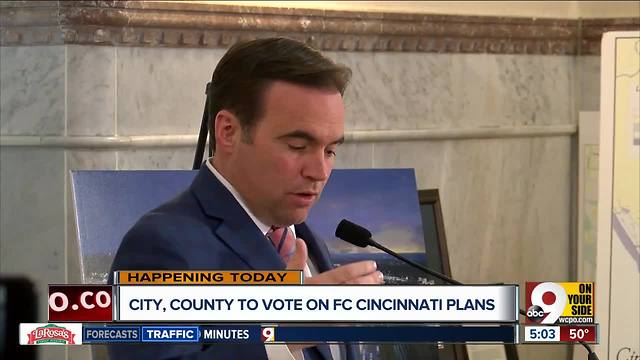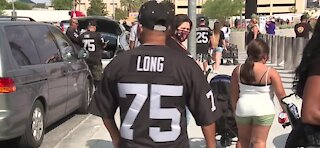Premium Only Content

Questions linger around mayor's FC Cincinnati stadium proposal
After months of uncertainty, Cincinnati City Council finally got a chance on Monday to ask their first public questions about how tax money could be spent on an FC Cincinnati soccer stadium project. Despite a 4 1/2-hour meeting Monday, many big questions still linger about how many jobs a new soccer stadium will create, if the city is assuming debt to pay for the project, and who will pay for cost overruns. As city council prepares to take a final vote on the stadium project on Wednesday, WCPO analyzed six key questions that remain. Will tax money be used on the project? “We are not putting one penny of taxpayer dollars into the stadium,” Mayor John Cranley said Monday. It’s correct to say that no tax money will be spent on the actual stadium, as the team has agreed to privately finance the $200 million stadium. City Hall, however, will tap into a pot of tax money to build the infrastructure needed for opening that stadium. Cranley’s stadium project plan, released Monday, includes $2.5 million from the city’s capital budget in 2019 -- that’s the same money the city uses to pave roads, buy new police cruisers or maintain the city’s bridges, including the Western Hills Viaduct. That money comes from property taxes Cincinnati’s residents pay as well as income taxes workers in the city contribute. The $2.5 million Cranley wants to use for the stadium project takes just a small bite out of the city’s annual capital budget -- but the city’s capital budget is getting tighter every year. In 2017, city leaders set aside $90 million for capital needs. In 2019, the city could have as little as $64 million on hand, according to budget projections. The city will also use another source of tax money to fund the project: hotel taxes, which are used to fund tourism activity, including maintenance and rehabilitation of the Duke Energy Convention Center. Since out-of-town visitors pay these taxes, they are not typically viewed as a burden on residents living in the city. “People who live here don’t stay in hotels," Cranley said. "It is not something that is coming out of your pockets."
-
 2:08
2:08
WCPO
1 year agoSports betting is almost legal in Kentucky
210 -
 2:21
2:21
WKBW
4 years agoQuestions linger about Buffalo police data analytics proposal
58 -
 2:36
2:36
WCPO
4 years agoFC Cincinnati says goodbye to Nippert Stadium
18 -
 3:20
3:20
WCPO
5 years ago'Say I Do' shot in and around Cincinnati
5 -
 1:47
1:47
KERO
4 years agoOfficials respond to questions lurking around the holidays
16 -
 1:43
1:43
KMTV
4 years agoCouncil questions if mayor's choice can handle recycling contract
14 -
 1:34
1:34
WPTV
5 years agoQuestions linger about reopening national, state governments
17 -
 1:28
1:28
KTNV
4 years agoFans from around the World came to Allegiant Stadium for Raiders first game
20 -
 20:30
20:30
WCPO
5 years agoCincinnati mayor's COVID-19 update on April 8, 2020
12 -
 0:09
0:09
SarahCharlieBrooke
4 years ago $0.40 earnedScooting Around
3312